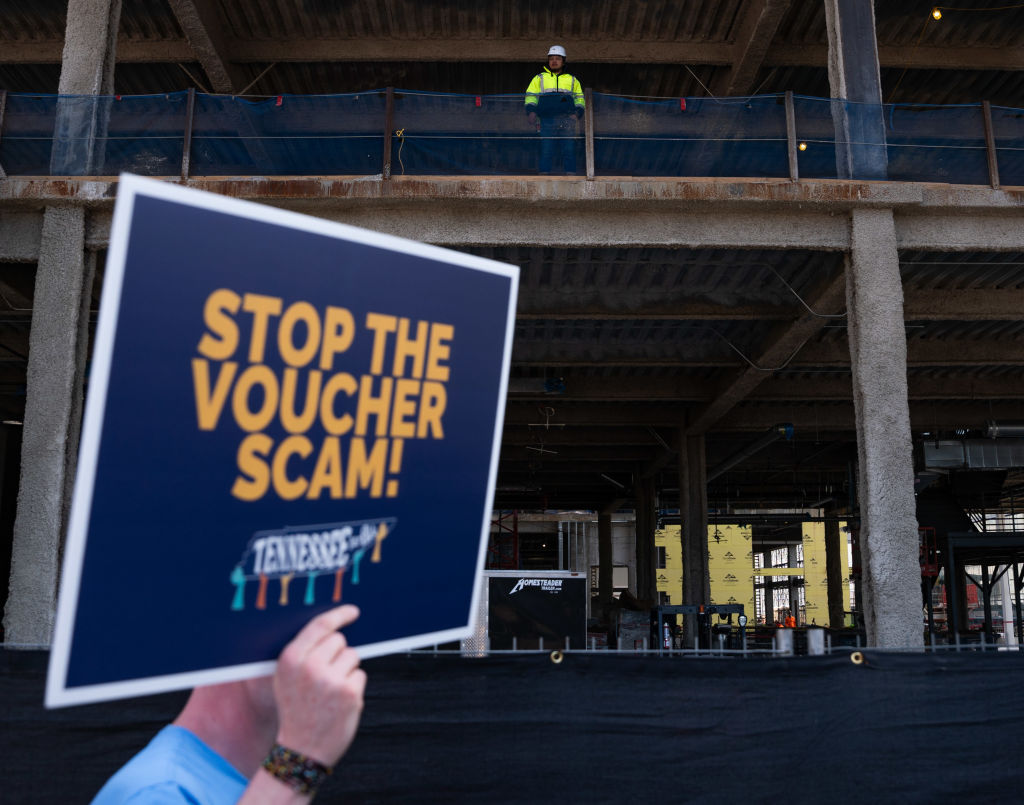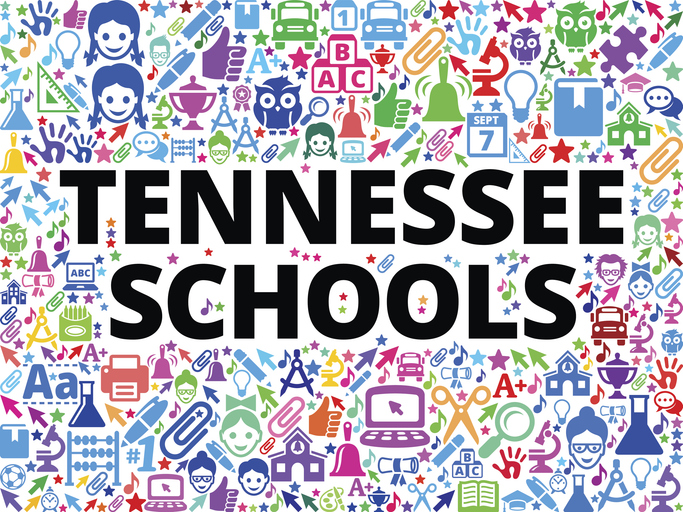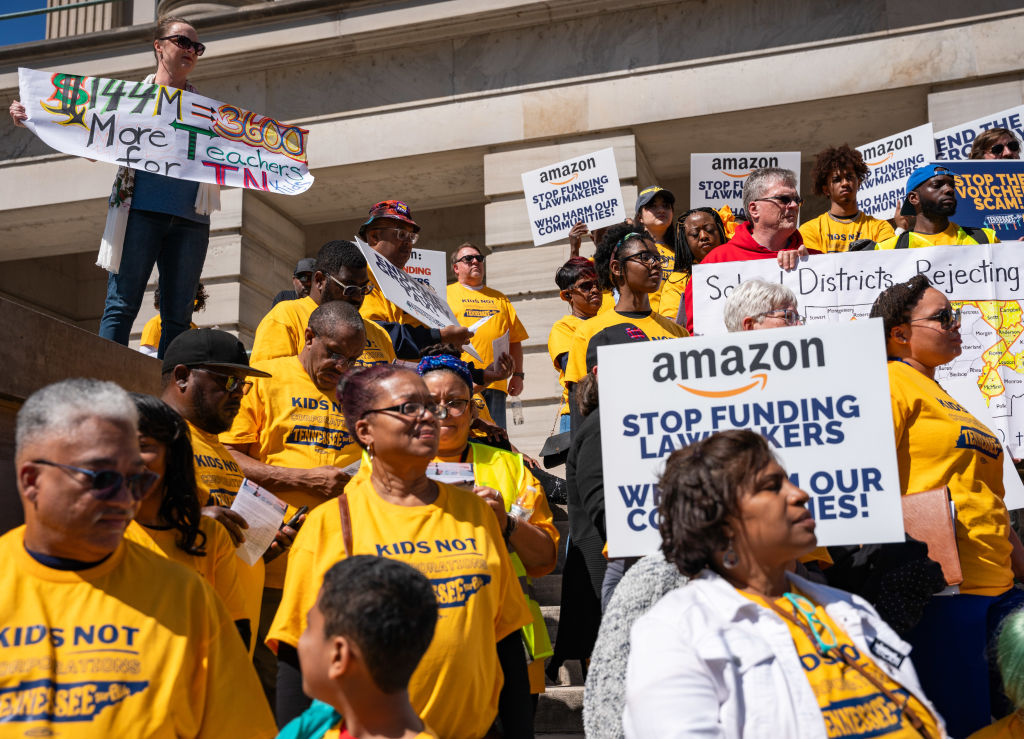Concerns Grow Over Tennessee School Voucher Program

One of the stranger issues the GOP focused on during the last election cycle was “school choice.” There was a big push for taxpayer-funded vouchers that essentially act as scholarships for private schools. Given that this is the party down with pulling funding for free school lunches, it was a little sus that they suddenly wanted to use taxpayer money to pay for students to gain a private school education. The controversy surrounding Tennessee’s school voucher program over its alarming lack of transparency could be the key to understanding why the GOP has been so insistent on “school choice.”
According to Chalkbeat Tennessee, the application for Tennessee’s Education Freedom Scholarship doesn’t require parents to list where their children previously went to school. This absence is unusual as the question is regularly asked in several state voucher programs. The absence of the question has raised concerns that the scholarship is mostly going to people who already have their children in private schools. Governor Bill Lee (R) has dismissed these concerns by pointing to the legislation that created the scholarship.
“It’s not required by the legislation, so it’s not necessary to have,” Lee said Tuesday. “What we hope for is universal school choice where every family, regardless of their child’s past education history, has access to a scholarship. Ultimately, that would be the goal.”
The income threshold to apply for Tennessee’s school vouchers is also significantly higher than one would expect from a state-funded scholarship.

From Chalkbeat:
In the first year of the program, half of the state’s 20,000 vouchers are subject to income limits. They are reserved for families who make under 300% of the federal income threshold to qualify for free or reduced price lunch. A family of four, for example, would be eligible for the income-capped voucher if they made less than $173,160.
When asked how he would respond to criticism that a lack of data could hamper accountability and oversight measures of the program, Lee said he didn’t think it would be an issue. He also said he wasn’t concerned about tracking whether the program is indeed expanding access to private schools for families who had previously been enrolled in public schools, which has long been Lee’s stated goal for the program.
“With half of the families being low-income families, I think that problem is being solved,” Lee said.
Looking at Tennessee’s school vouchers on a surface level, it seems like this was explicitly designed for parents who can already afford to put their kids in private schools. Gov. Lee signed a bill earlier this year banning DEI in schools, state offices, and local government, so one could safely assume that addressing educational disparities within Black and brown communities is not one of the criteria being used to determine who receives these scholarships.
This is a shame, because recent data show that Black, Latino, and low-income students in Tennessee have substantially worse test scores than their white peers. Overall, 38 percent of students were proficient in the English Language Arts (ELA) portion of the Tennessee Comprehensive Assessment Program (TCAP), the state’s standardized testing program. When you break down across demographics, only 22 percent of Black students in the state scored proficient on the (ELA).

Tennessee’s school vouchers could have been a great way to address the racial disparities present within the state’s education system and provide access to better, more specialized schooling for the students who most need it. Instead, it takes away money from public schools and gives it away to those who already can afford to put their kids in private schools.
This isn’t even speculation on my part, as a financial impact analysis conducted by the state found that 65% of the students who would receive the vouchers would already attend private school.
Interestingly, there’s been criticism about the lack of transparency from both state Democrats and Republicans.
“It seems fairly clear that the administration does not want to know these things because they’re afraid it may not line up with the narrative that was put out there for the reason they were supporting this measure,” Republican state Rep. Jody Barrett told Tennessee Lookout. Barrett has called for the formation of an independent oversight board to oversee how the money is being spent and track who receives it.
“We are distributing over $125 million in taxpayer funds in $7,300 increments, yet there appears to be no meaningful oversight or basic data collection,” Democratic state Rep. Caleb Hemmer told Chalkbeat. “We’ve already seen the consequences of unchecked voucher programs in other states — most recently in Florida, where funds were used to purchase more than 5,000 theme park tickets, including to Disney World.”
So we can’t use public funds to house the unhoused, improve the health care system, address racial disparities in education, or forgive student loans. Rich people using taxpayer money to go to Disney World, though? That’s perfectly fine.
SEE ALSO:
School Choice Vouchers Led To Lower Academic Achievement
Brown v. Board Of Education’s Legacy Of School Vouchers

Post a Comment
0 Comments